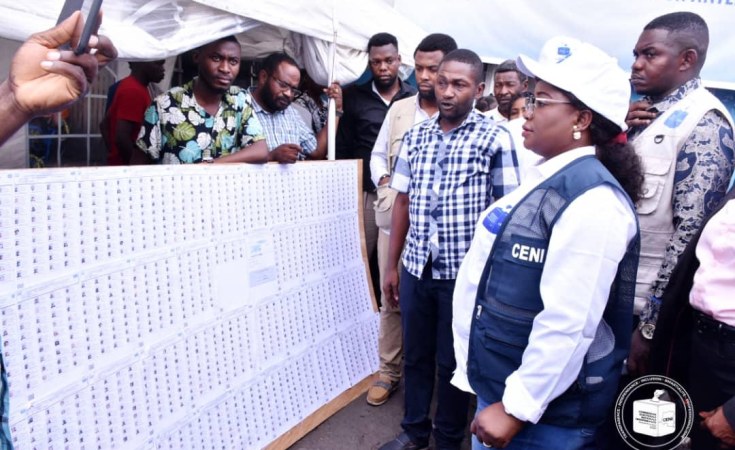Nairobi, Kenya — Campaigning for the top job in the Democratic Republic of Congo is in full swing, a little more than a week before the country is due to hold presidential elections.
Incumbent President Felix Tshisekedi, who's seeking a second term, launched his campaign bid by urging thousands of supporters to renew their trust in him.
Other candidates competing for the same job include a Nobel Peace Prize winner, Denis Mukwege; a rival who came in second place in the 2018 presidential elections, Martin Fayulu; and the former governor of copper-rich Katanga region, Moise Katumbi.
Dany Ayida, a senior resident director for the National Democratic Institute in the DRC, says some in the opposition are already forming alliances.
"The candidates were 26 at the beginning of the campaign... we know 3 or 4 candidates decided to join Moise Katumbi. We know discussions are going on between Mukwege and Fayulu. We don't know if they'll keep their candidacies or join effort to have a common candidate," he told VOA.
Ayida, who spoke with VOA from the DRC capital of Kinshasa, says the independent national electoral commission - known by its French acronym CENI - is doing its best to ensure the elections take place on December 20th but challenges related to disseminating voting materials and insecurity in some parts of the country remain.
CENI recently announced there was a fire at one of their locations that affected voting materials, including voting machines.
"Now this is a challenge. We don't know if they've been replaced yet or if CENI is going to buy some new materials. Apart from that, some candidates also in terms of accessing some regions, some territories like in the eastern Congo, this is a challenge," Ayida says.
DRC is Africa's second largest country. Its eastern part is home to at least 100 different rebel groups and has been plagued by violence.
Recent escalations have pushed the number of people displaced within Congo to nearly seven million, according to the International Organization for Migration.
A force assembled by the East African Community was deployed in the area last year to help defeat some of the rebel groups, including the M23, a pro-Tutsi militia. But President Tshisekedi has repeatedly criticized the force for being ineffective and has asked them to withdraw.
Aimable Ndarishize is from South Kivu province but has been a refugee in Kenya the past two years.
"I agree with the government, but the government shouldn't just ask these types of forces to leave for the sake of kicking them out," Ndarishize told VOA. "The government should also put in place measures to deal with the issue."
He says it almost doesn't matter who wins the election but notes that given DRC's rich supply of natural resources, he would prefer someone who would develop his country. Plus, he'd like to return.
"It's best I go home [one day] and I would prefer that ... whoever wins, whether it's a second term for Tshisekedi, or it's Katumbi or someone else, the priority should be securing the country," he says..
A feeling echoed by Eric Bagirubwira, a civil society member who spoke with VOA from Goma. He says he is not impressed with Tshisekedi's first term, which is why he's supporting a different candidate.
"He promised the whole DRC population that his first combat will be the restoration of peace especially in the Eastern DRC but so far, security remains a dream in this part. Secondly, talking about infrastructures, you can try to move around different corners of this country, you can see that these days there are no roads," Bagirubwira says.
But even if one can find roads 90 percent of the time, they are not in good condition, he says. And as a former teacher he'd like to see a little more focus and investment in the education sector.


